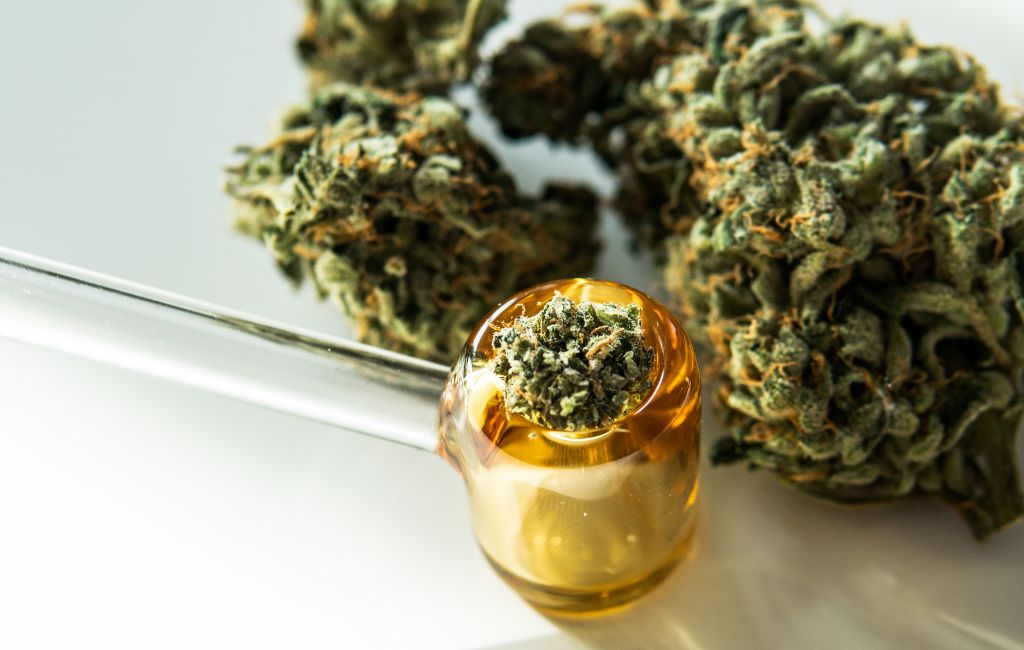
THCa Flower vs. THC: What’s the Difference?
In the ever-evolving landscape of cannabis, understanding the nuances between different compounds is key to making informed choices. Two such compounds that often come up in discussions are THCa and THC. While they share a similar name, their effects and uses can differ significantly. This article explores the distinctions between THCa flower and THC, providing insights into their unique properties and potential benefits.
Understanding THCa
THCa, or tetrahydrocannabinolic acid, is a non-psychoactive cannabinoid found in raw and live cannabis plants. It is the precursor to THC, the compound responsible for the psychoactive effects commonly associated with cannabis. THCa is abundant in fresh cannabis and begins to convert into THC when exposed to heat through a process known as decarboxylation.
Properties of THCa
- Non-psychoactive: THCa does not produce the “high” associated with THC.
- Anti-inflammatory: Research suggests that THCa may have anti-inflammatory properties, making it potentially beneficial for conditions like arthritis.
- Neuroprotective: Some studies indicate that THCa might offer neuroprotective benefits, which could be useful in treating neurodegenerative diseases.
- Anti-emetic: THCa may help reduce nausea and vomiting, offering potential relief for patients undergoing chemotherapy.
Exploring THC
THC, or delta-9-tetrahydrocannabinol, is the most well-known cannabinoid due to its psychoactive effects. It is the compound that gives cannabis its characteristic “high.” THC is formed when THCa is exposed to heat, such as when smoking or vaping cannabis.
Properties of THC
- Psychoactive: THC is responsible for the euphoric and mind-altering effects of cannabis.
- Pain relief: THC is known for its analgesic properties, making it useful for managing chronic pain.
- Appetite stimulation: Often referred to as the “munchies,” THC can increase appetite, which can be beneficial for individuals with eating disorders or undergoing treatments that suppress appetite.
- Sleep aid: THC may help improve sleep quality, particularly for those with insomnia or other sleep disorders.
Comparing THCa Flower and THC
While both THCa and THC originate from the same plant, their applications and effects can vary widely. Understanding these differences can help users choose the right product for their needs.
Consumption Methods
- THCa Flower: Typically consumed raw or in a non-heated form, such as in smoothies or salads, to preserve its non-psychoactive properties.
- THC: Commonly consumed through smoking, vaping, or edibles, where heat is applied to activate its psychoactive effects.
Medical Applications
- THCa: Often used for its potential anti-inflammatory and neuroprotective benefits without the psychoactive effects.
- THC: Preferred for pain management, appetite stimulation, and sleep aid due to its psychoactive properties.
Legal Considerations
The legal status of THCa and THC can vary depending on the region. In some areas, THCa is not subject to the same regulations as THC, allowing for broader use and distribution. However, once THCa is converted to THC, it may fall under stricter legal controls.
Case Studies and Research
Several studies have explored the potential benefits of THCa and THC, providing valuable insights into their applications.
THCa Research
A study published in the British Journal of Pharmacology highlighted THCa’s potential anti-inflammatory properties, suggesting it could be beneficial for conditions like inflammatory bowel disease. Another study in the Journal of Neuroimmune Pharmacology indicated that THCa might offer neuroprotective benefits, which could be promising for neurodegenerative diseases.
THC Research
Research on THC has been extensive, with studies demonstrating its efficacy in pain management and appetite stimulation. A study in the Journal of Pain found that THC could significantly reduce chronic pain in patients, while research in the Journal of Clinical Psychopharmacology showed its potential in increasing appetite in patients with HIV/AIDS.
Conclusion
Understanding the differences between THCa flower and THC is essential for making informed decisions about cannabis use. THCa offers potential therapeutic benefits without psychoactive effects, making it suitable for those seeking relief without a high. In contrast, THC provides psychoactive effects that can aid in pain management, appetite stimulation, and sleep improvement. As research continues to evolve, both compounds hold promise for various medical applications, offering diverse options for users.
- ** Picking the Right CBD Oil for Your Pet Cat: Tips and Recommendations **.
- Navigating CBD Oil Dose for Dogs: What Every Owner Requirements to Know
- ** CBD for Horses: A Comprehensive Guide to All-natural Discomfort Alleviation **.
- Homemade Joy: Exactly How to Make Your Very Own CBD Pet Deals With in the house
- ** Actual Stories: How Probiotics Transformed My Canine’s Health and wellness right **.